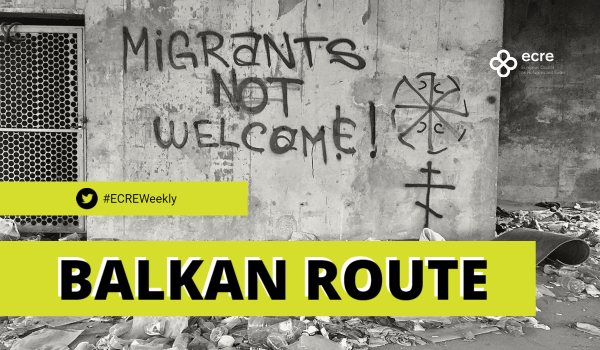- A Dutch MEP and a Bulgarian NGO have renewed their concerns about migrant pushbacks on the Bulgarian-Turkish border and questioned the use of the EU’s funding to Bulgaria.
- Two Serbian NGOs have claimed that the Hungarian government’s migration policy has “inadvertently boosted” the smuggling networks operating on the Hungary-Serbia border.
- The Council of the EU has decided that the EU will sign an agreement with Serbia on operational activities to be undertaken by the European Border and Coast Guard Agency (Frontex).
Two months after Bulgaria partly joined the Schengen area, a Dutch MEP and a Bulgarian NGO have renewed their concerns about migrant pushbacks on the country’s border with Türkiye. In an opinion piece published by EUobserver, Tineke Strik MEP and the Centre for Legal Aid – Voice in Bulgaria stated that the Bulgarian authorities were continuing to deny that pushbacks were even taking place despite numerous reports to the contrary. “They claim these statistics merely cover “preventions of entry” as a result of increased border surveillance in Turkey,” they wrote. The opinion piece also addressed the funding that the EU has allocated to Bulgaria and Romania for border and migration management in the framework of their Schengen accession: “Just as Croatia acceded to Schengen in 2022 and Greece was rewarded in 2020 for their stringent ‘migration control’, Bulgaria now follows in their footsteps as the EU again pumps hefty investments into the ‘defence’ of the EU’s external borders despite ample evidence of fundamental rights violations”. The authors were critical of how the EU funding was being used: “The vast majority of EU money being granted to Bulgaria goes to border control and border surveillance, at the expense of strengthening the asylum system and without consultation from civil society actors who engage directly with people migrating”. They also proposed an alternative use for the EU funding. “This money could be going towards ameliorating the critically sub-par conditions in dilapidated and dirty camps, to hiring translators, specialised staff, and trained professionals to reduce the asylum backlog, and to supporting integration”.
As Hungary prepares to take over the presidency of the Council of the EU on 1 July 2024, two Serbian NGOs have claimed that the Hungarian government’s migration policy has “inadvertently boosted” the smuggling networks that operate on the Hungary-Serbia border. According to InfoMigrants, the continued border closure and the migrant pushbacks that have been taking place for several years, have resulted in an increase in violence in the region “with criminal gangs occupying border regions and migrants becoming increasingly vulnerable to exploitation”. Milica Švabić from the NGO Klikaktiv explained how smugglers were able to exploit the situation. “(…) it was impossible for people to cross the border in any other way,” she said, adding: “There was no humanitarian corridor, no tolerated or legal way for people to leave Serbia and enter the EU”. Commenting on the situation, the executive director of ECRE member organisation the Asylum Protection Center, Radoš Đurović, said that the existence of the border fence and pushbacks were “producing smuggling, not fighting it”. He also likened Hungary and Austria’s objectives of engaging with Serbia on migration-related issues to Italy’s ongoing engagement with Albania: “to organise some kind of a buffer zone to protect their own external borders”.
The Council of the EU has decided that the EU will sign an agreement with Serbia on operational activities to be undertaken by the European Border and Coast Guard Agency (Frontex). According to a Council press release, the agreement will allow the EU and Serbia to organise “joint operations involving Frontex and the Serbian border guard”. It will also enable Frontex border management teams to be deployed inside Serbia, and allow Frontex to assist Serbia in “managing migratory flows, countering illegal immigration and tackling cross-border crime”. The new agreement is significant as the current agreement only allows joint operations on Serbia’s borders with the EU. Once it has been signed, the agreement will need to be ratified, a process that will involve a vote in the new European Parliament.
Related articles
- BALKAN ROUTE: Migrants Risk Tranquiliser Addictions ― Frontex Triples Staff at Bulgaria-Türkiye Border Ahead of Schengen Expansion ― Refugees in Serbia Endure Violence & Harassment ― Bosnia and Herzegovina’s Greenlight for Accession Talks Amid Reports of Violence Along Border with Croatia ― Decrease in Irregular Crossings Via Western Balkan Route (March 2024)
- BALKAN ROUTE: Frontex to Massively Increase Deployment on Bulgaria-Türkiye Border Despite Having Previously Ignored Evidence of Pushbacks ― European Commission to Strengthen Co-operation on Border and Migration Management with Bulgaria and Romania ― Concerns in Serbia About Future of Temporary Protection for Displaced People from Ukraine as Deadline Looms (March 2024)

